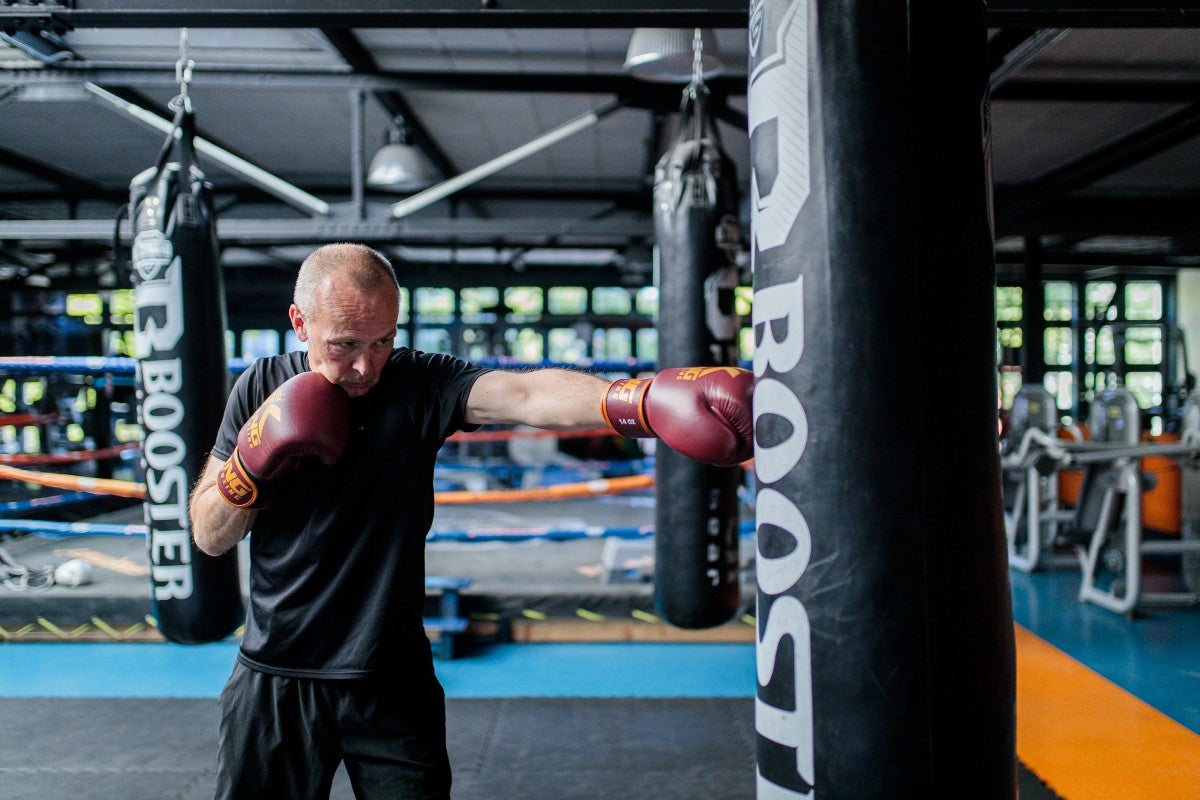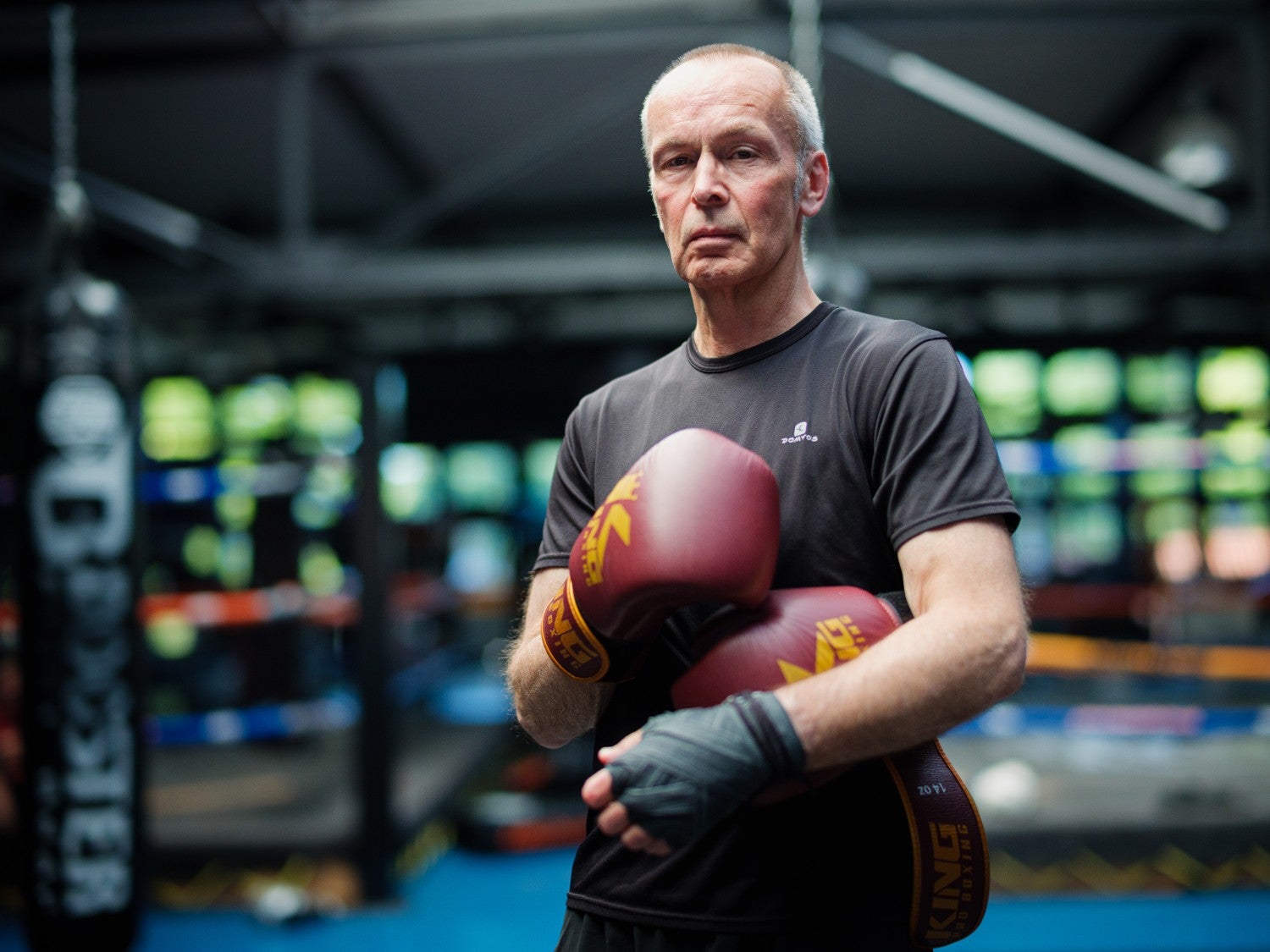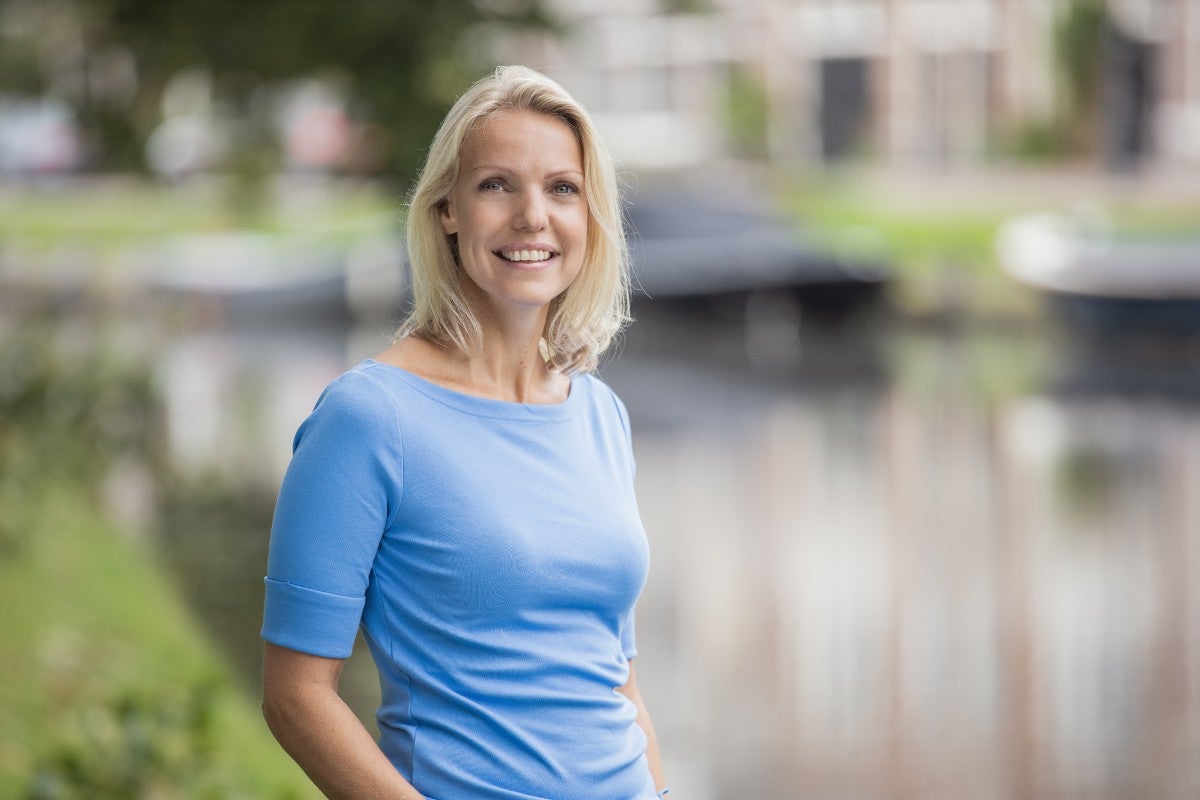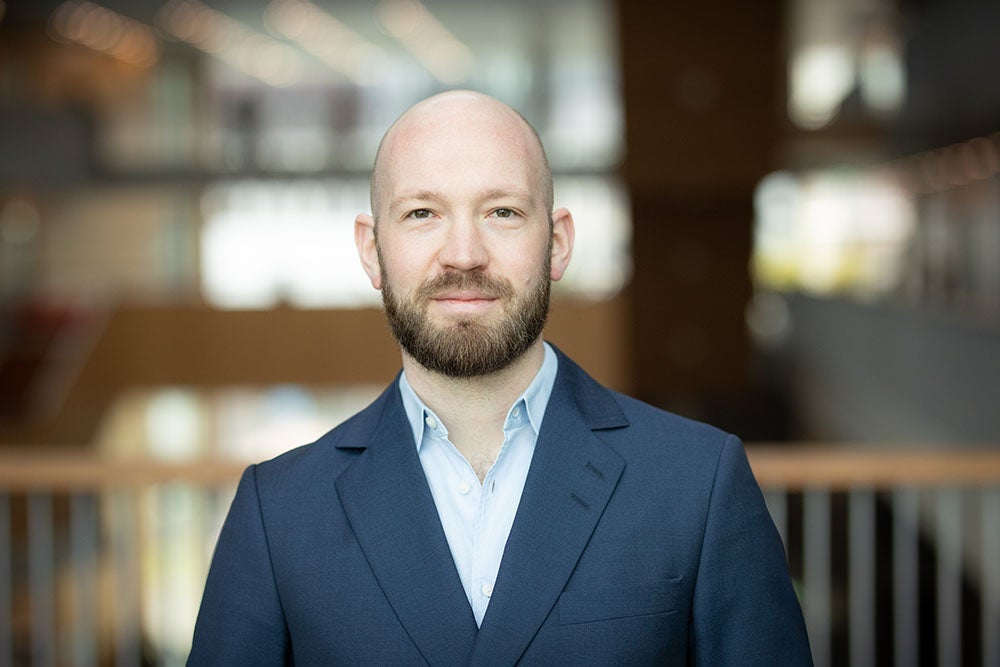Frank van Gemert, a criminologist at Vrije Universiteit Amsterdam, not only researches kickboxing but also trains weekly in the gym. „Whether you're a construction worker, taxi driver, or a 66-year-old university lecturer: none of it matters when you're on the mat."
Tell us, how did you get involved in researching the world of kickboxing?
„I wrote a biography about youth worker Said Bensellam. For him, kickboxing played a crucial role in getting off the streets. He was willing to tell me about his life, but I had to see where he came from. At the end of our collaboration, he gave me boxing gloves and informed me that I was expected in the gym for a training session the next morning. As a criminologist, I had already heard a lot about the kickboxing scene, and it wasn't necessarily positive. So, I found it interesting to have direct access and look around. I hadn't anticipated that this would lead to long-term research and even a book."
Now, 10 years later, you still go every week. You must feel at home there.
„I didn't see that coming either. The most remarkable thing about kickboxing is that it doesn't matter where you come from. Whether you're a construction worker, taxi driver, or a 66-year-old university lecturer, it all disappears on the mat. You don't know each other but train intensely in pairs. You give and take punches, and the more it hurts, the better it goes. That's a very strange reasoning that only works if you trust each other and are close. So, in that sense, it's a very intimate experience with someone you barely knew beforehand."
„The strict hierarchy between the trainer and the student is part of the Japanese martial arts on which kickboxing is based. The student must know their place."
Kickboxing is also characterised as a serious sport.
„I've done several other sports. During training, you can mess around or joke, but when it comes to kickboxing it's serious business. The strict hierarchy between the trainer and the student is part of the Japanese martial arts on which kickboxing is based. The student must know their place."
In your book, you write that the kickboxing world was traditionally surrounded by an aura of the criminal underworld. Do you recognise that from your personal experiences?
„In the gym where I used to train, I sometimes noticed that. Someone would suddenly disappear, and no one knew what had happened to him. I heard in an interview for my book that Klaas Bruinsma once walked in to ask for a private lesson. The trainer of that gym didn't know who he was and sent him away."
„It was also true that many of those guys in the gym were good fighters and were asked to work as bouncers. They could hold their own. In clubs or bars, they kept the drug trade under control that way, but they were also partly involved in the underworld themselves."

„But what also played a role was the way the average citizen viewed it. Unlike popular judo and karate, kickboxing was a full-contact sport. Serious blows were exchanged. The first practitioners were often street fighters. In the early years, kickboxing was known as a world full of rogues that no one in mainstream society wanted anything to do with."
Now I train at a gym in Amsterdam Nieuw-West. It's different there.
„You see that the trainers have a social role. They keep an eye on the kids who come, whether they do their homework and don't fight on the streets, for example."
Is there nothing left of that old world?
„Not much, it has become a regulated world, and kickboxing is now even recognised as a national sport. This is mainly because the government decided to regulate some things after a series of incidents. A proliferation of small federations with their own rules has merged into one controlled federation over several years. At the same time, a fighter like Rico Verhoeven became popular, and the sport slowly gained a different image. This led to a significant increase in practitioners."
„You see that the government wants to bind everything to rules, but at the same time, kickboxing remains an exciting product that needs to be sold."
But the kickboxing world is still surrounded by an aura of aggression, right?
„This martial art finds itself in an interesting split. You see that the government wants to bind everything to rules, but at the same time, kickboxing remains an exciting product that needs to be sold. And that exciting product includes punches and tough stories. You can't fill an evening with a 3 x 3-minute match, so a show is created around it based on tough expressions and challenging each other."
You've written several biographies about former criminals. How do you see the role of biographies in academic research?
„For me—trained as an anthropologist—it feels very logical. I research people, and if I want to really get to know them, I must go to the places they describe. See the neighbourhood where someone grew up or smell the sweat on the mat. So, I had to go to the gym when I wrote Saïd's story. That way, stories literally fall into place."
„But it's true that few academics at the end of their careers still do anthropological research and continue to immerse themselves in an unknown world as I do. Often, as careers progress, people become more desk-bound, focusing on managing and data collection is done by others. Retreating into the ivory tower of the university is not for me."








